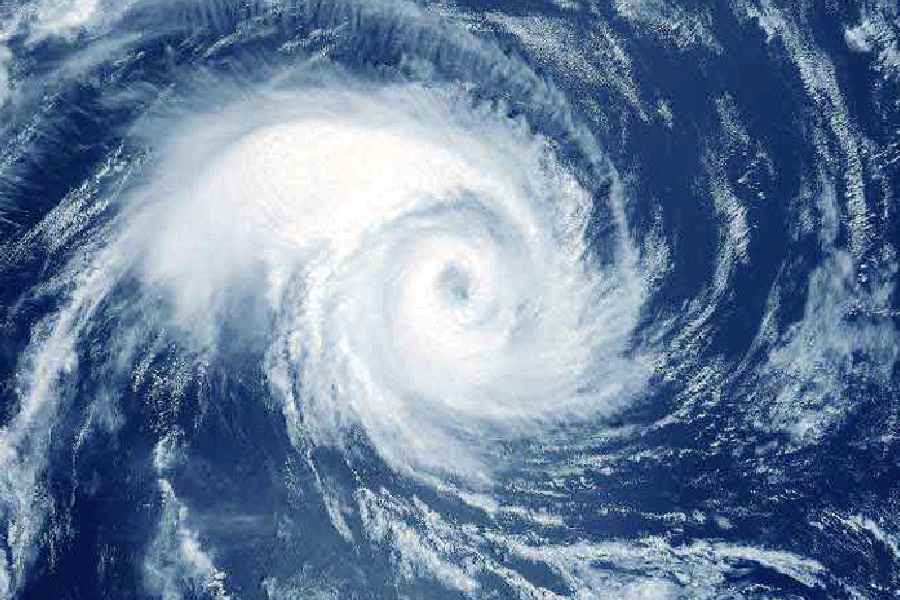Bangladeshi authorities on Saturday ordered hundreds of thousands of people on southeastern coastlines to evacuate as a "very dangerous" tropical cyclone was expected to make landfall in the country, threatening the Rohingya refugee camp, the world's largest.
Cyclone Mocha, one of the most powerful cyclones seen in Bangladesh in nearly two decades, is predicted to make landfall on Sunday near the Bangladesh-Myanmar border.
“Directives have been issued to evacuate to safety hundreds of thousands in our southeastern coastlines,” a disaster management ministry spokesman told PTI.
His comments came after Bangladesh's Met office released its latest special weather bulletin asking the maritime ports of southeastern Chattogram and Cox’s Bazar to hoist “great danger signal number 8”.
The Met Office said the “very dangerous cyclonic storm Mocha” continued to move to the north northwest packing winds up to 175 kilometres per hour.
The World Meteorological Organisation (WMO) earlier on Friday feared a storm surge of 2-2.5 metres over the weekend that was likely to inundate low-lying areas of North Myanmar as well as parts of Bangladesh where flash floods and landslides were also possible.
"It's a very dangerous cyclone and...it's associated with violent winds...There will be major impacts both ahead and after landfall for potentially hundreds of thousands of the world's most vulnerable people," WMO spokesman Clare Nullis told a press briefing in Geneva.
Meteorologists said the storm's path is set to affect Bangladesh's southeastern border district of Cox's Bazar where over a million Rohingya refugees live. Most of them fled to neighbouring Bangladesh after a military-led crackdown in Myanmar in 2017.
Their shelters are made of bamboo, tin and polythene sheets and are vulnerable to strong winds, rain, and landslides.
According to the Disaster Management Ministry, more than 1,500 cyclone centres have been set up, with a target to evacuate 500,000 people in the two districts.
“We’re focussing on the efforts to ensure adequate food, safe shelter and special care for women, children and the elderly," the ministry's spokesperson said.
Volunteers and government workers were requesting the residents of the coastal areas to move to safety before Saturday night a government spokesman said “We have stocked food for one week”.
UN refugee agency spokesperson Olga Sarrado said preparations were underway for a partial evacuation of the Rohingya refugee camp if needed.
The agency was also preparing tens of thousands of hot meals and jerrycans, she said.
Bangladeshi authorities have set up 55 shelters at Bhasan Char offshore island, where nearly 30,000 of the Rohingya refugees have been relocated from the mainland.
Bangladesh exclusively dedicated the Bhasan Char to the Rohingyas though most of them live in the mainland of Cox’s Bazar adjacent to Myanmar borders.
Many residents, along with all the tourists, have left St Martin’s Island near Cox’s Bazar in the Bay of Bengal.
The authorities suspended inland river transport across Bangladesh from Friday night and flight operations at Shah Amanat International Airport in Chattogram from Saturday morning.
The government postponed the Secondary School Certificate exams slated for Sunday under Chattogram, Barishal, Cumilla, technical and madrasa boards.
Sunday’s exams at the National University have also been postponed. The Power, energy and mineral resources ministry said it halted supplying LNG from two floating terminals in Cox’s Bazar.
The Chattogram port has been put on the highest alert. The docked ships are being moved to the outer anchorage.
Except for the headline, this story has not been edited by The Telegraph Online staff and has been published from a syndicated feed.










